Idea by
Nikita Gyawali
Call for ideas 2017
Permanent Temporality of Refugee Camps: The Syrian Chapter
Permanent Temporality of Refugee Camps: The Syrian Chapter
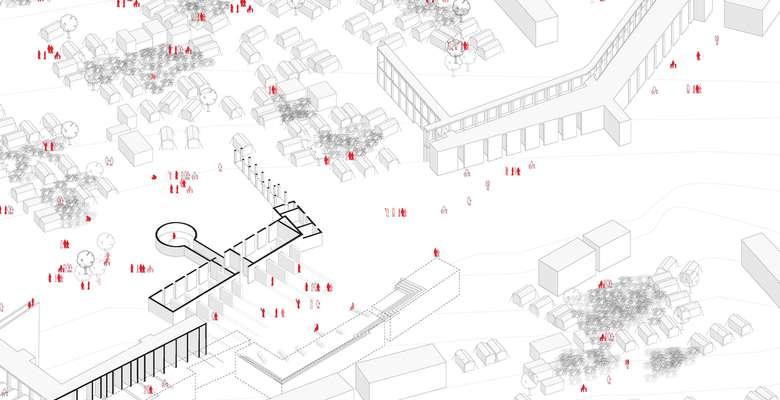
The project focuses on the dilemmas and problems facing the refugee camps today, namely those of temporality, segregation and control, protraction of situations, self management and self sufficiency.
In dealing with these issues, and pre existing guidelines, a proposal for a new urban prototype is made, a camp for Syrian refuges in south Turkey.
The old city fabric of Aleppo including the souks or the markets and the old citadel inspires the new camp layout. The project aims to rekindle the ancient craft of soap making in Aleppo through soap making facilities, a direct connection to the homeland.
The new camp addresses the possibility of long term stay and integration of Syrians into Turkish soil, focusing on issues of self-reliance, through employment and education namely:
-markets as series of semi public spaces leading up to a big public plaza
-schools as important structures in organizing the settlement
-possibility of growth and settlement into a city
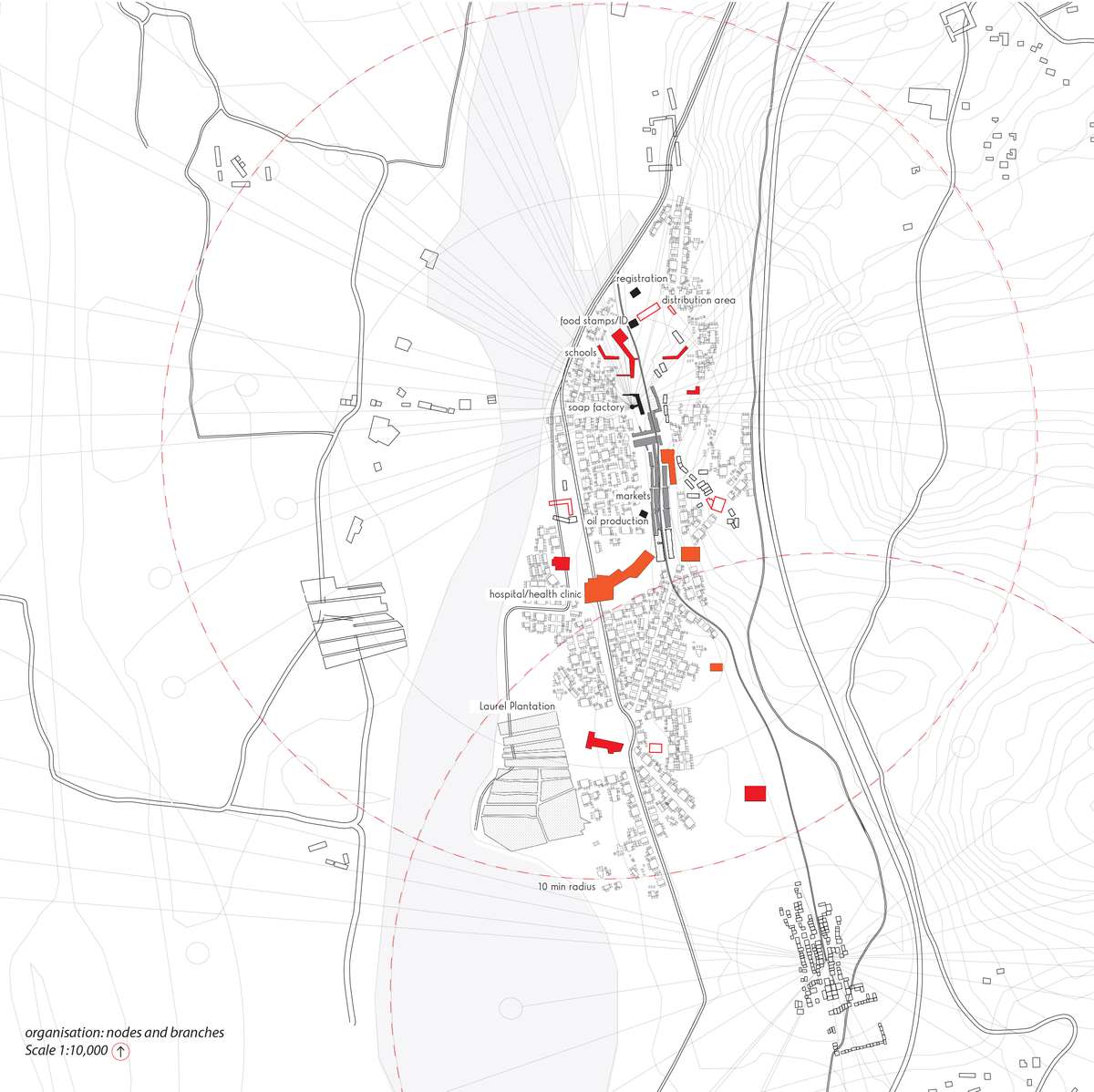
Organisation of the new Camp: Nodes and Branches
The social spine becomes the most important element of the camp with the residential spaces organized around it.
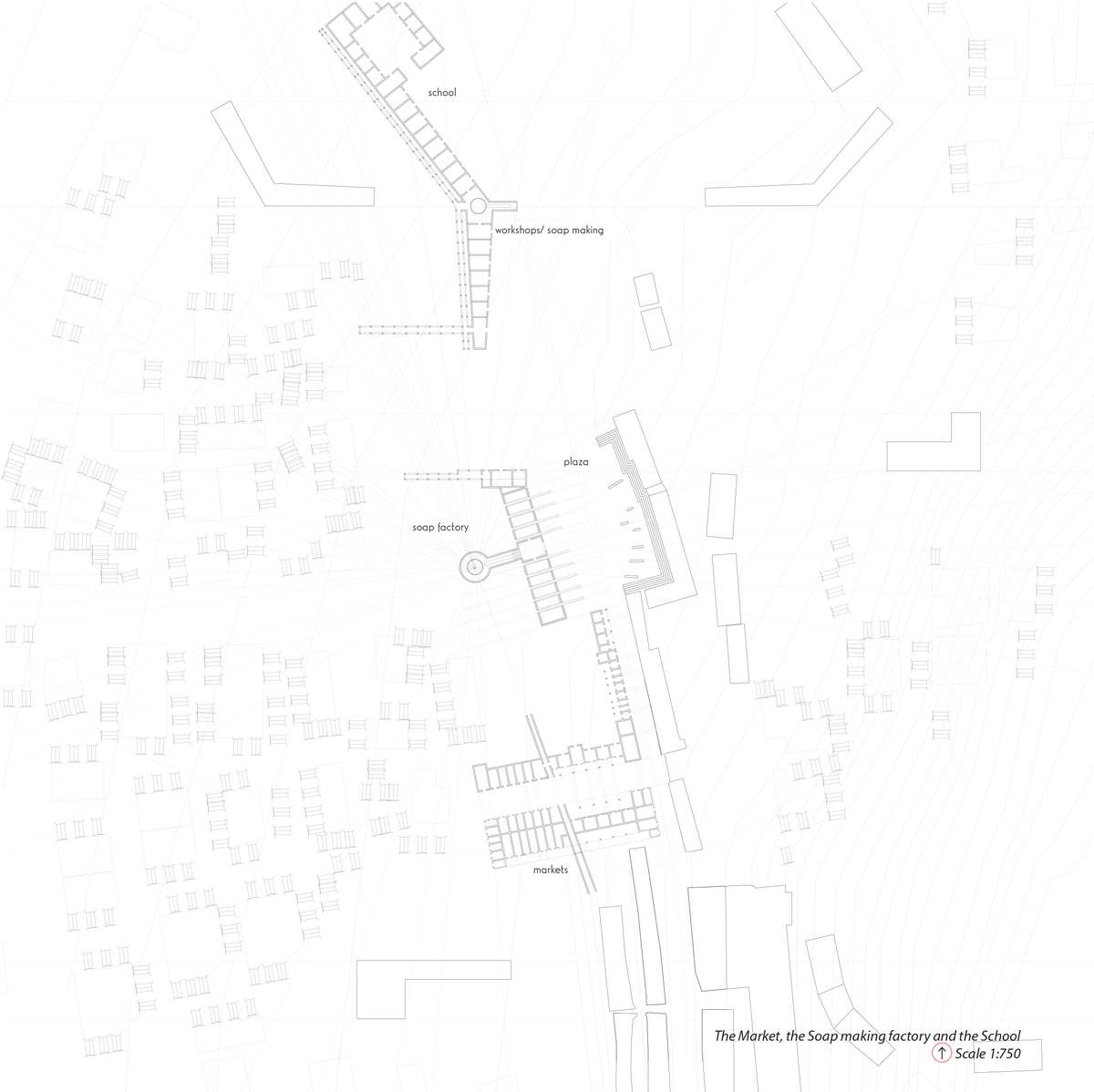
Market place, factory and the school
The new urban prototype focuses on markets as series of semi public spaces leading up to a big public plaza. Schools also become important in organizing the settlement and the factory an important part of the self-reliance aspect.
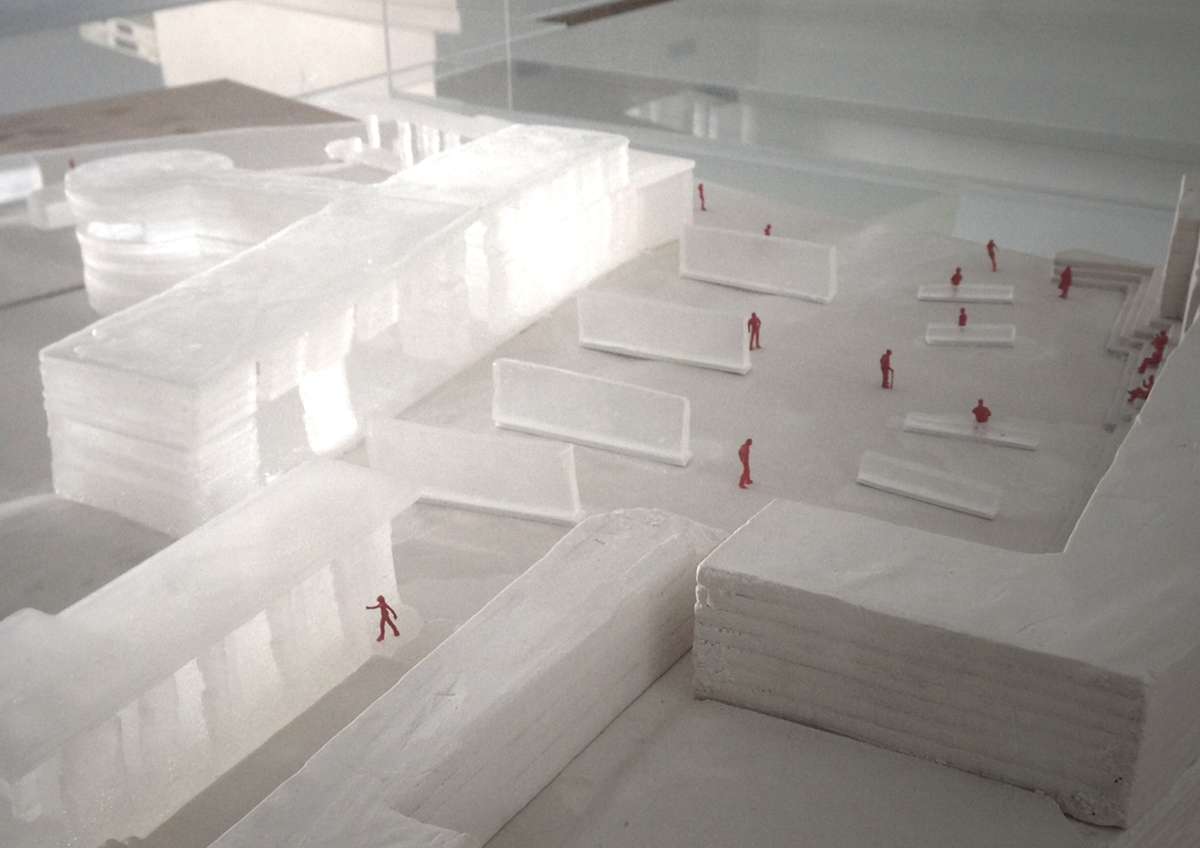
The Soap factory and the plaza: Soap and plaster model
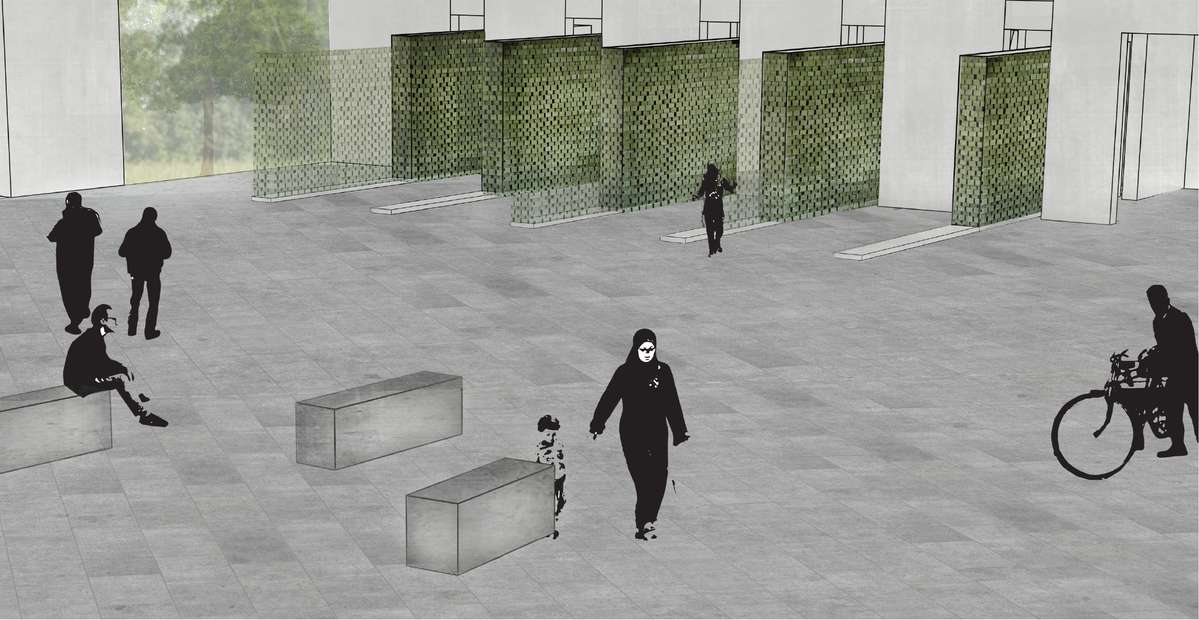
The Soap factory and the Plaza
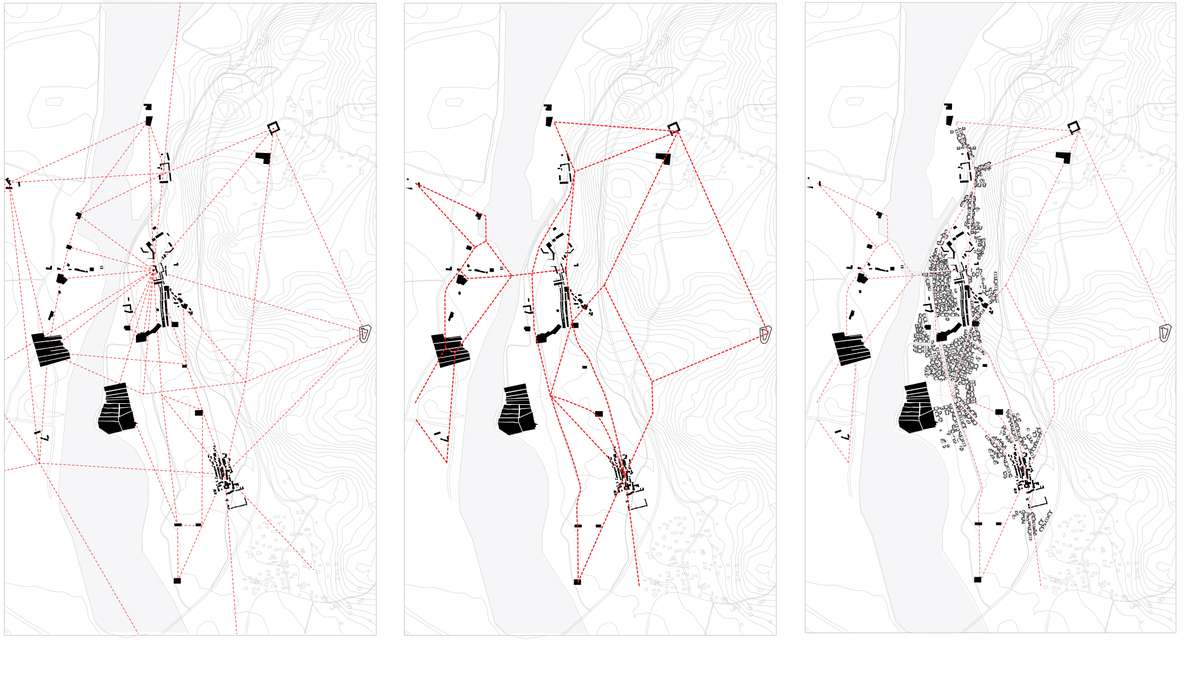
Growth over time
Frei Otto’s model for growth for informal settlements as an example of how the
settlement will tend to grow organically over time, within and beyond the site, an important catalyst for urban growth.
Permanent Temporality of Refugee Camps: The Syrian Chapter
Permanent Temporality of Refugee Camps: The Syrian Chapter

The project focuses on the dilemmas and problems facing the refugee camps today, namely those of temporality, segregation and control, protraction of situations, self management and self sufficiency.
In dealing with these issues, and pre existing guidelines, a proposal for a new urban prototype is made, a camp for Syrian refuges in south Turkey.
The old city fabric of Aleppo including the souks or the markets and the old citadel inspires the new camp layout. The project aims to rekindle the ancient craft of soap making in Aleppo through soap making facilities, a direct connection to the homeland.
The new camp addresses the possibility of long term stay and integration of Syrians into Turkish soil, focusing on issues of self-reliance, through employment and education namely:
-markets as series of semi public spaces leading up to a big public plaza
-schools as important structures in organizing the settlement
-possibility of growth and settlement into a city
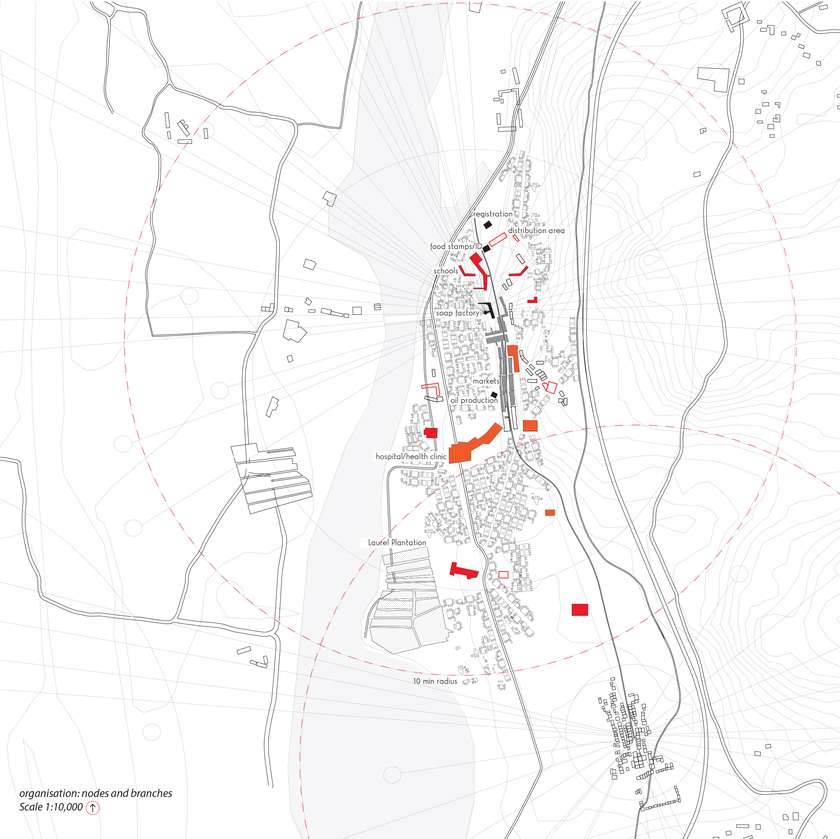
Organisation of the new Camp: Nodes and Branches
The social spine becomes the most important element of the camp with the residential spaces organized around it.
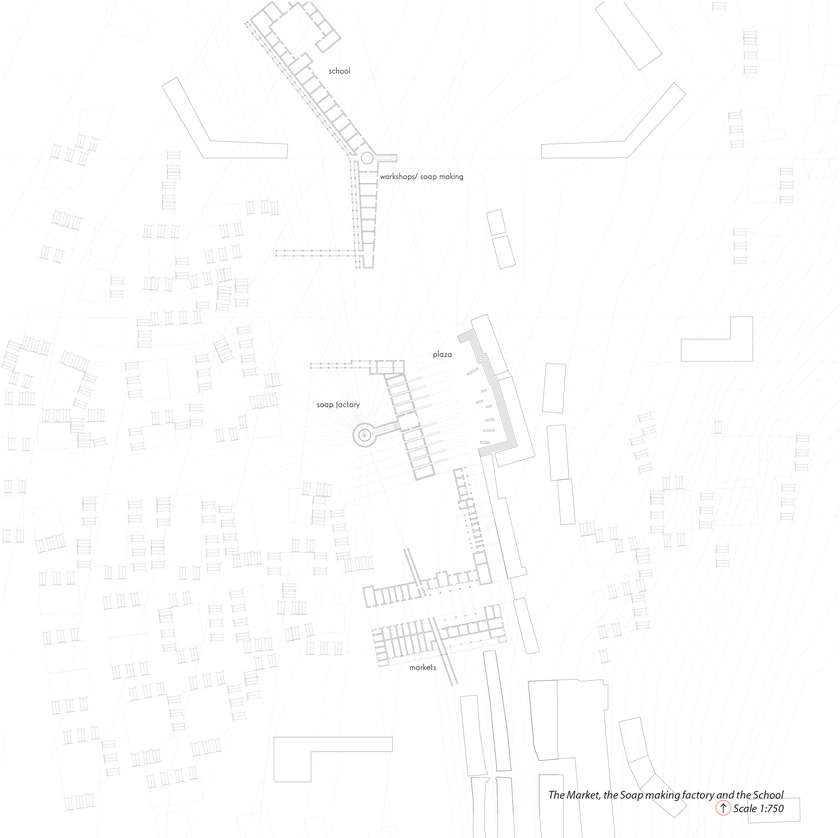
Market place, factory and the school
The new urban prototype focuses on markets as series of semi public spaces leading up to a big public plaza. Schools also become important in organizing the settlement and the factory an important part of the self-reliance aspect.
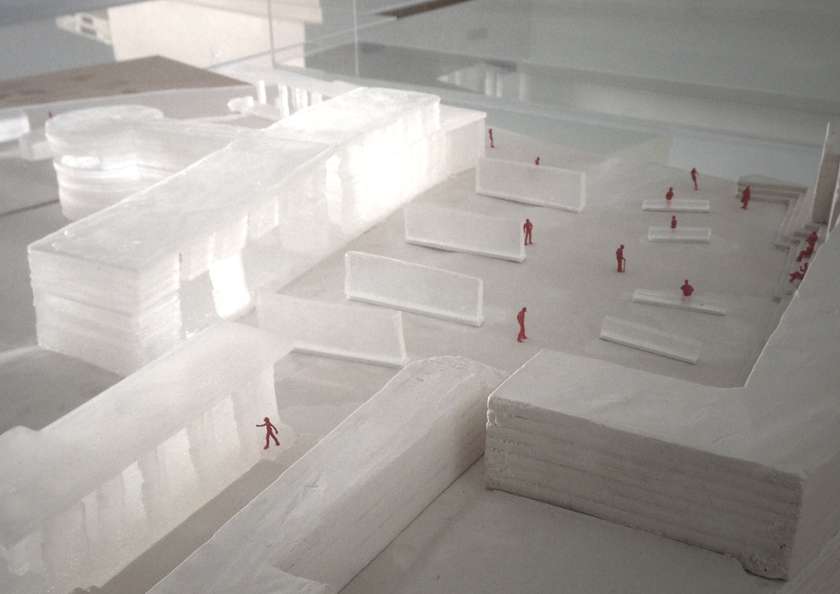
The Soap factory and the plaza: Soap and plaster model
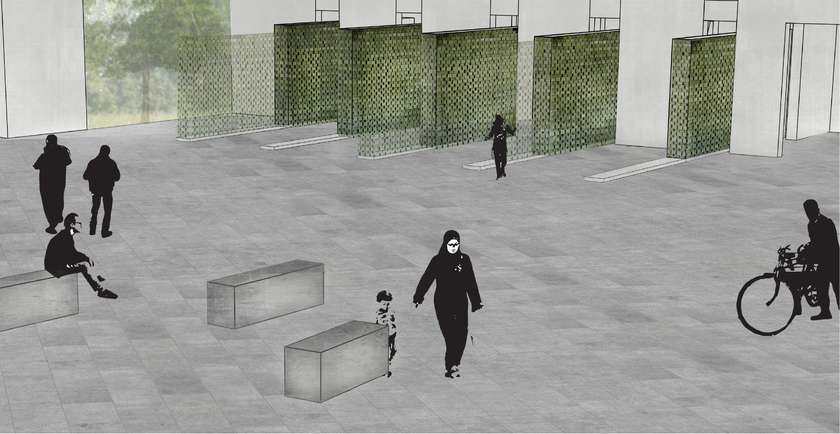
The Soap factory and the Plaza

Growth over time
Frei Otto’s model for growth for informal settlements as an example of how the
settlement will tend to grow organically over time, within and beyond the site, an important catalyst for urban growth.
